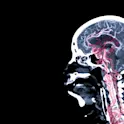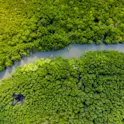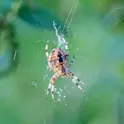
Psychology
07 Jun 2023
Science shows why our taste in music can’t be siloed into catch-all genres
By Deborah Pirchner, Frontiers science writer Image: Shutterstock.com Music genres have long been used to describe people’s musical taste. Now, a team of scientists has examined music tastes of a broad German sample and found that it is not sufficient to know what genres people like to describe their musical taste. The researchers also found certain musical tastes may be connected to specific socio-demographic and personality variables of people who like the same genres. Liking certain things or styles is an important aspect of people’s identities and social lives. Tastes can influence the ways humans act and judge. How to best describe musical taste reliably is – due to the ever-changing diversification and transformation of music – difficult and open to debate. Using an approach which also considered sub-genres, researchers in Germany surveyed more than 2,000 people on their musical taste and took a closer look at the fans of five genres: European classical music, electronic dance music (EDM), metal, pop, and rock. “Our analyses revealed that people who like the same genre can have very different tastes if asked which sub-genres they like,” said Anne Siebrasse, a doctoral student at Max Planck Institute for Empirical Aesthetics and lead author […]













